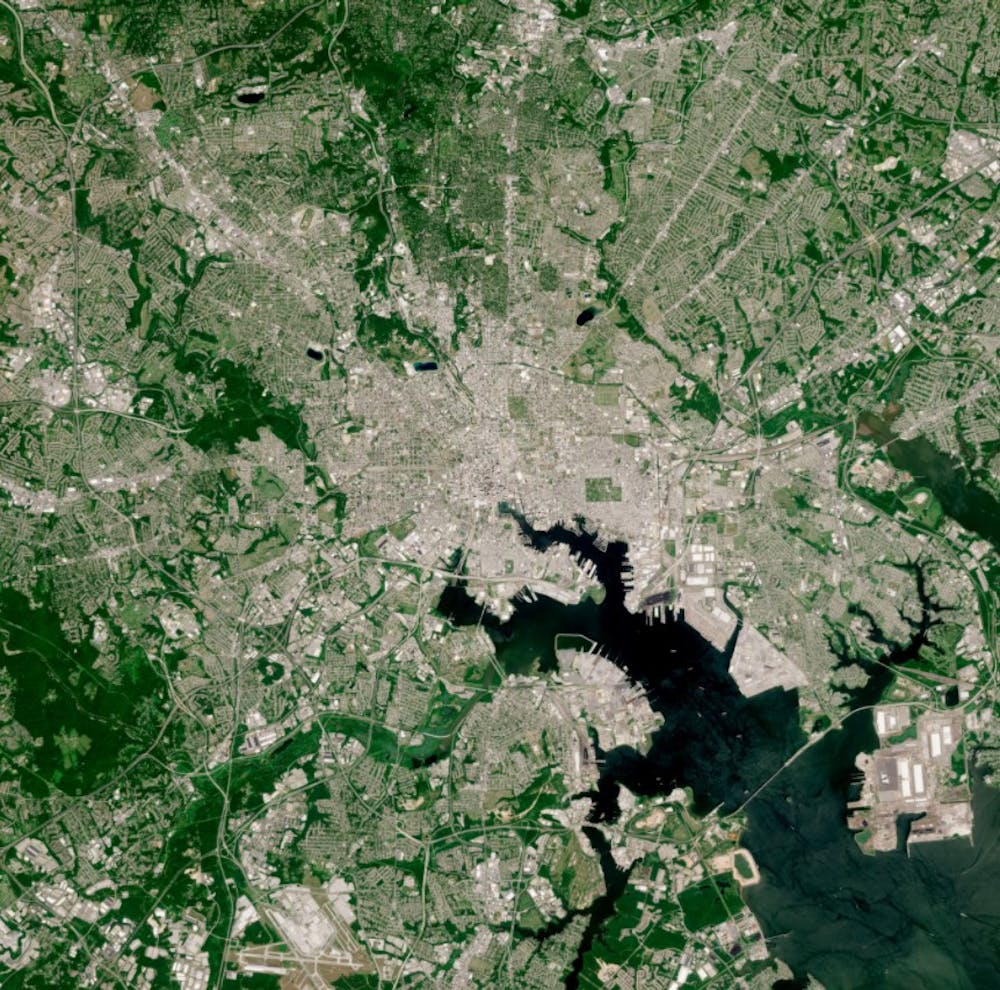On Jan. 28 the Center for the Law and the Public’s Health and the Stavros Niarchos Foundation Agora Institute hosted a discussion on “Climate Change, Public Health, and the U.S. Supreme Court.” Guest speakers included the Baltimore Chief of the Affirmative Litigation Division Sara Gross, University of Maryland Environmental Law Professor Robert Percival and University of Maryland Public Health Professor Amir Sapkota.
Thomas Burke, professor and chair in Health Risk and Society at the Bloomberg School of Public Health, served as the moderator of the event, which focused on how the newly configured U.S. Supreme Court may rule on climate change cases and other matters vital to public health.
During his time in office, former President Donald Trump rolled back more than 100 environmental rules and precedents set before him. President Joe Biden has made climate change a central issue of his administration, even appointing John Kerry as the first climate envoy.
The efforts of the Biden administration alone will not determine the course of climate policies in this country; the Supreme Court has a central role to play in determining the nation’s path to a greener future. During the event, Percival took time to highlight this issue, bringing up the recent appointment of Justice Amy Coney Barrett.
“I was greatly disappointed when Justice Barrett at her confirmation hearings was asked about climate change and she refused to respond at all,” Percival said. “The question will be: Will these new Trump-appointed judges and a conservative Supreme Court block initiatives by the Biden administration to respond to this problem?”
The Supreme Court will play a big role in environmental lawsuits, like the Baltimore case against oil giants BP, Chevron, ExxonMobil and Shell that took place on Jan. 19. Baltimore is seeking damages from these companies due to their detrimental impact on the environment, arguing that these fossil fuel giants knew that their products caused potentially catastrophic global warming.
The lawsuit traces its origins to 2018, when the city of Baltimore first sued 26 oil and gas companies, stating that they are liable under Maryland state law for the city's costs of dealing with climate change and other destruction caused by extreme weather, a rising sea level and increased public health risks. The Baltimore case is one of 20 similar suits which have also been filed in other states like Massachusetts, Rhode Island, Connecticut, New York, Delaware, Colorado, California and Hawaii.
Baltimore is a prominent example of the detrimental effects that global warming can have on U.S. cities. Sapkota explained that the effects of global warming have been drastically pronounced due to the lack of tree canopy in the city.
“Urban city centers such as Baltimore, they suffer from the urban heat island effect,” he said. “Because it’s a concrete jungle, it’s higher than the surrounding suburbia. So, when there is a heat wave, it is nastier in the city.”
In addition, the lawsuit on global warming can serve as a way to open up discussions on other related issues, like public health, equity and environmental justice. Currently, Baltimore is one of the most polluted cities in the U.S., and much of this pollution disproportionately affects health in poor and minority communities, contributing to asthma and other chronic conditions. According to the Office of Minority Health, Black Americans were almost three times more likely to die from causes related to asthma than the white population in 2014.
“I think it’s really important that our cities and states are able to file suit and hold these companies accountable for their adverse impact on our environment and our health,“ Burke said in an interview with The News-Letter. “This is a landmark lawsuit for the City of Baltimore.”
While there are still many environmental challenges taking place in Baltimore, Biden is working to reverse the deleterious effects of climate change. In his first week as president, Biden re-joined the Paris Agreement and began the process of reinstating environmental regulations reversed under Trump. In addition, there has been a shift in the auto industry toward green energy and battery powered cars. In a surprising announcement, General Motors announced that it planned to exclusively offer all electric vehicles by 2035.
“I think the fact that the corporations that have traditionally been some of the worst defenders in terms of generating climate change are out there and publicly admitting that climate change exists is certainly helpful and creating a different environment for the court, and I think the court has to be cognizant of that,” Gross said.
Percival also remains hopeful of the future regarding environmental policies.
“After a long struggle against the fossil fuel industry, we are at a place where you can no longer deny the science, and that’s going to produce a huge shift in public attitudes,“ he said in an interview with The News-Letter. “Along with the election of our president, we have an opportunity for change now and in the future.”





